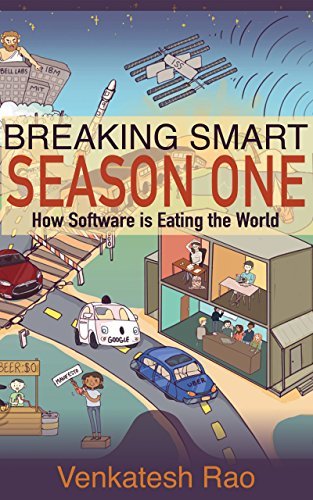What do you think?
Rate this book


167 pages, Kindle Edition
First published August 1, 2015
Pastoralists can imagine sustaining changes to the prevailing social order, but disruptive changes seem profane.
This general principle of fertility-seeking has been repeatedly rediscovered and articulated in a bewildering variety of specific forms. The statements have names such as the principle of least commitment (planning software), the end-to-end principle (network design), the procrastination principle (architecture), optionality (investing), paving the cowpaths (interface design), lazy evaluation (language design) and late binding (code execution).
Traditional processes of consensus-seeking drive towards clarity in long-term visions but are usually fuzzy on immediate next steps. By contrast, rough consensus in software deliberately seeks ambiguity in long-term outcomes and extreme clarity in immediate next steps.
Enhanced information availability and lowered friction can make any field hacker-friendly
If pastoral visions are so limiting, why do we get so attached to them? Where do they even come from in the first place? Ironically, they arise from Promethean periods of evolution that are too successful.
Anything that is in the world when you’re born is normal and ordinary and is just a natural part of the way the world works. Anything that’s invented between when you’re fifteen and thirty-five is new and exciting and revolutionary and you can probably get a career in it. Anything invented after you’re thirty-five is against the natural order of things.